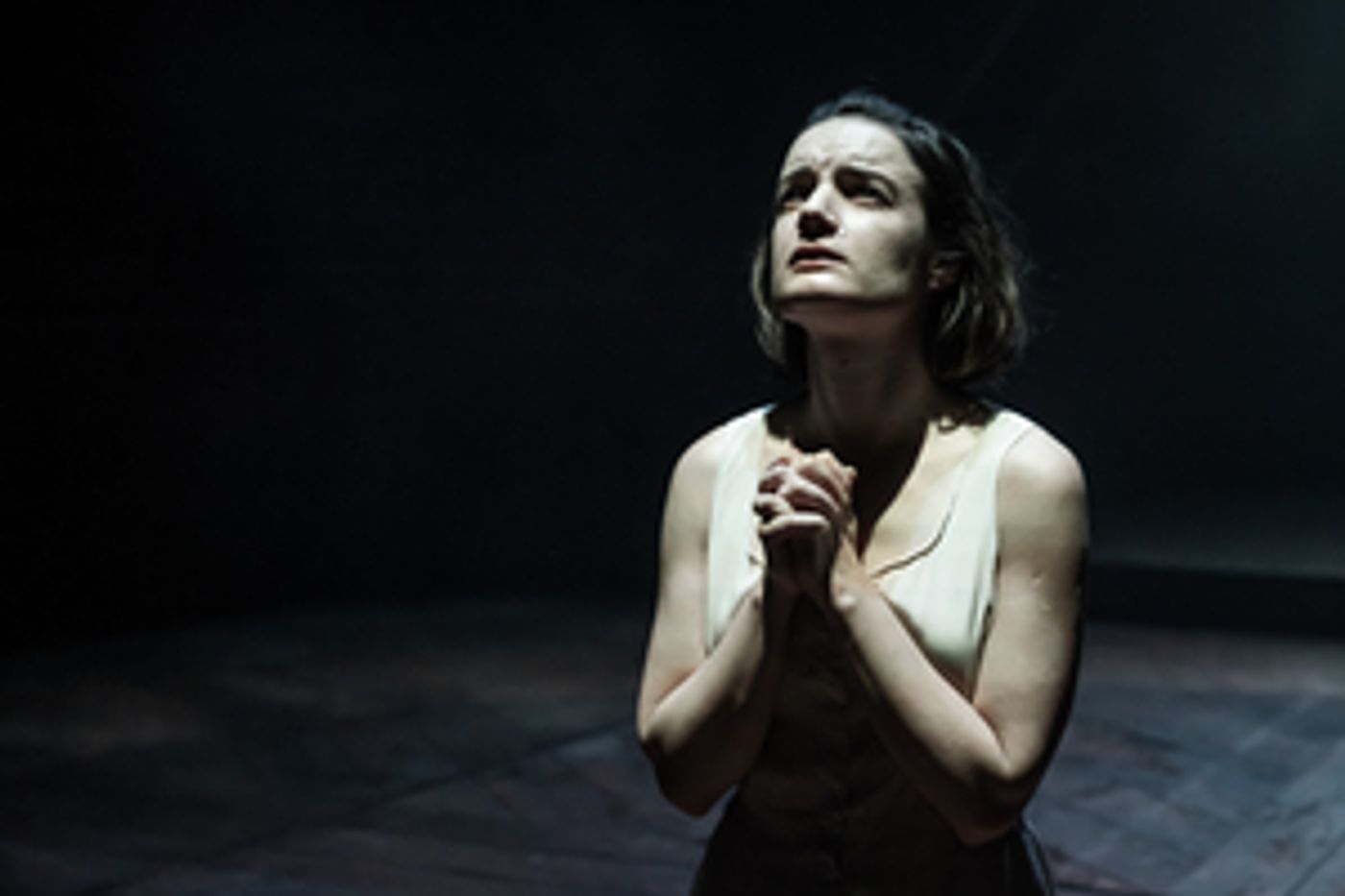Review: BLOOD WEDDING, Young Vic

![]() Federico García Lorca's 1932 tragedy, Blood Wedding, was created of the cusp of the Spanish Civil War. The playwright himself was murdered, it is believed, by Nationalist militia in 1936.
Federico García Lorca's 1932 tragedy, Blood Wedding, was created of the cusp of the Spanish Civil War. The playwright himself was murdered, it is believed, by Nationalist militia in 1936.
The play was one of three of tragedies set in rural Spain (another being Yerma, which the Young Vic staged in 2016 starring Billie Piper). Tragedy was his domain, and the fabric of his plays are about the most sinister parts of collective human behaviour. Yaël Farber's production commits to this so wholly that, despite being unrelentingly harrowing, it is utterly captivating.
The play centres around the fate of the three people who fall victim to the most unfortunate love triangle. As the Bride prepares for her wedding, it becomes apparent she loves someone else. She escapes with him, but the villagers follow them.
A seemingly infinite vicious circle haunts the families of rural Ireland (although keeping the spirit of the original play, Marina Carr's adaptation places the action in a near-mythic land between there and Andalusia, where Lorca's version is set). Carr gets the humanity of Lorca's work, and no ounce of his lyrical poeticism is lost.
The atmosphere of unrelenting intensity is mirrored in every creative element. Susan Hilferty's design is minimal, and feels crucially connected to Natasha Chiver's lighting design. In the audience, you feel like you're watching the production through a crack in an open door. What you see feels selective. The opening, for example, is breathtaking: the silhouettes of the villagers are barely visible from the back of the stage.
Isobel Waller-Bridge's music is inescapably gorgeous, yet eerie. The composition is a marriage of Irish-influenced string instrumentation and narration, which is sung in Spanish and English by The Moon, played by Thalissa Teixeira. She provides a powerfully understated performance, travelling with the characters throughout, maintaining the poetry inherent to the piece, and anchoring the otherworldly feel.
Somehow, the musical elements submit to the delicacy of the dialogue: the music knows when to stop. The silences, or the moments where only the quiet, creepy soundscape allow tension to thrive, are as important as the action.
The strength of this adaptation, as a whole, is this sense that each creative element makes room for the next. They are harmonious, yet often isolated from each other. Movement director Imogen Knight, for example, crafts these incredible sections that depict horse-riding, featuring Leonardo, the 'other man'.
Julia Horan's casting is really quite perfect. Gavin Drea's performance is so physically evocative: his embodiment of Leonardo is lyrical to the most microcosmic detail. It's like he's always on the brink of breaking into a contemporary dance piece - ideal for the movement-focused moments.
The cast are a committed collective of doom-deliverers. Aoife Duffin's Bride teeters on the brink, but just about keeps it on the right side of EastEnders levels of melodrama. One of the play's only of moments of liberation hinges on her portrayal of sacrifice, and Duffin helps to keep the audience close to that journey.
Olwen Fouéré as Mother, an unyieldingly gloomy figure, hits every dark one-liner with such stark cynicism that laughter is teased from the audience regularly. It's a relief, but it doesn't take away from the intensity.
If you don't mind delving into the darkest part of the collective human psyche - our propensity for violence, our age-old inclination to create war - Farber's production won't disappoint. You'll basque in the inky gloom of humanity, and it's actually quite cathartic.
Blood Wedding is at Young Vic until 2 November
Read our interview with Isobel Waller-Bridge!
Photo Credit: Marc Brenner
Reader Reviews
Videos

